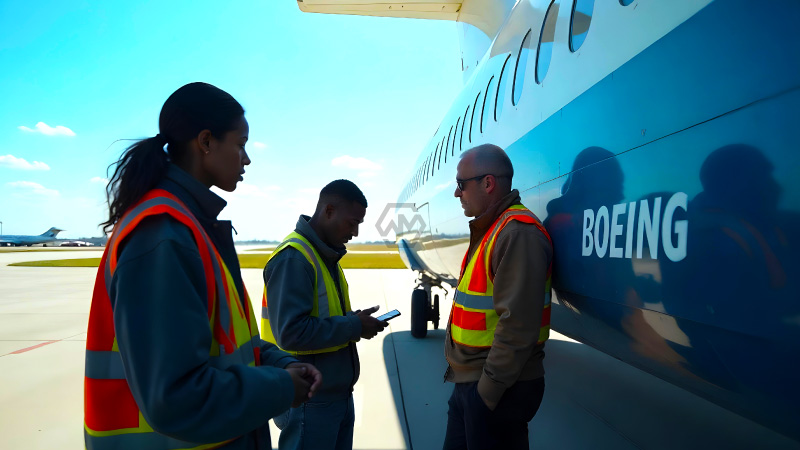- Boeing rolls out a “Safety & Quality Plan” with over a dozen new checks, focusing on inspector training and random audits.
- The company aims to reduce defects in its 737 fuselage assembly process at Spirit AeroSystems.
- FAA has emphasized the need for a cultural shift at Boeing, with a focus on safety and quality.
In response to recent safety issues, including a mid-flight incident with Alaska Airlines, Boeing has implemented a comprehensive “Safety & Quality Plan.” This includes over a dozen new quality control checks, enhanced training for inspectors, and random audits to ensure greater reliability in aircraft parts.
The changes come after pressure from the Federal Aviation Administration (FAA), which conducted an audit and required Boeing to improve its quality control.
Boeing’s Safety Overhaul: New Quality Measures Amid Recent Challenges
Boeing has unveiled a new set of quality control checks as part of its effort to regain trust following several safety scares. The measures include enhanced training for mechanics and inspectors, as well as a new random audit system for parts removed and returned from aircraft. These actions aim to improve reliability and reduce risks associated with faulty components.
A significant focus of the overhaul is the 737 fuselage assembly, which has faced defects in parts made by Spirit AeroSystems. Boeing has worked to increase inspection points and implement stricter customer approval processes to address these issues. This is crucial as the company strives to prevent further incidents and ensure that its planes meet the highest safety standards.
The FAA’s audit of Boeing last year prompted a deadline for the company to propose improvements to its quality control processes. The agency’s leadership stresses that a deeper cultural shift is needed at Boeing, one that places safety and quality above financial considerations. This shift is seen as essential for the company’s long-term success.
Boeing’s challenges in 2024 have been compounded by a major labor strike that disrupted production. The company’s financial difficulties, including a significant quarterly loss, have led to plans to reduce its workforce by 10%. These moves come as part of Boeing’s broader strategy to stabilize operations amid ongoing scrutiny.
Boeing’s new quality control measures mark a crucial step in addressing safety concerns and rebuilding its reputation. However, sustained effort and cultural change will be required to ensure long-term improvements.
FAA Administrator Mike Whitaker’s statement emphasizes the importance of a cultural shift at Boeing, noting that the company must prioritize safety and quality over profits to regain trust.



